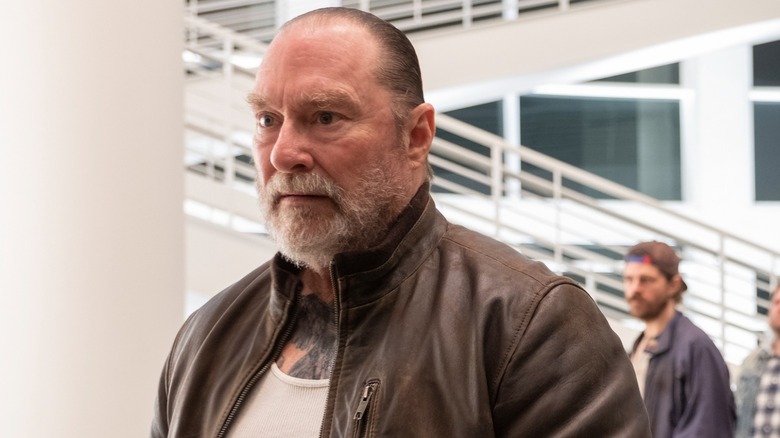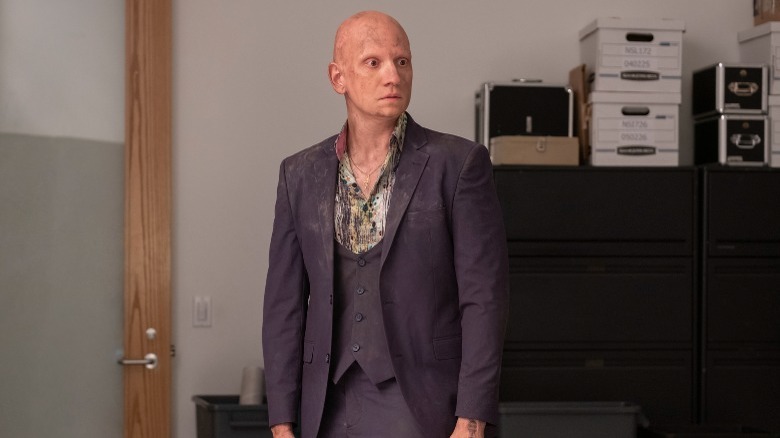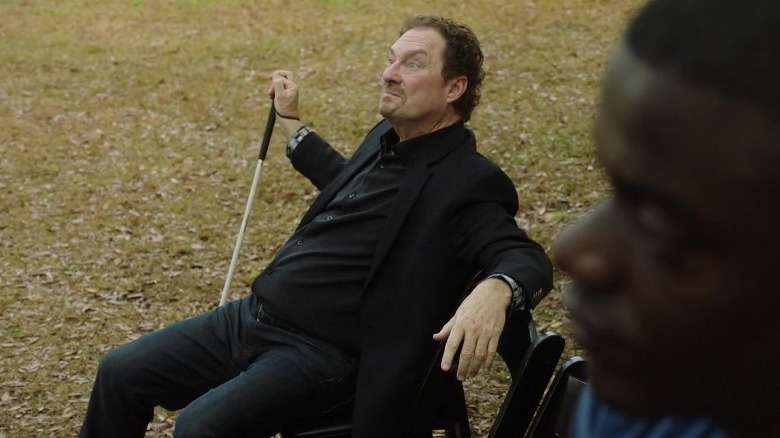Bill Hader's Directing In Barry Season 4 Reminded Stephen Root Of The Coen Brothers
This article contains spoilers for the series finale of "Barry."
Stephen Root has worked with some fantastic filmmakers over the course of his impressive, decades-spanning career. When he's not playing mercenary-turned-con man Monroe Fuches on "Barry" — a role he said goodbye to in last night's cutting series finale — he's giving great performances as an indispensable character actor under the direction of people like Ava DuVernay, Mike Judge, Clint Eastwood, Jordan Peele, and the Joel and Ethan Coen. After four masterful seasons of "Barry," though, it doesn't seem unreasonable to add first-time filmmaker Bill Hader to that list, as the comedian, actor, and writer blew audiences away every time he stepped behind the camera for the HBO series.
/Film's Josh Spiegel recently interviewed Root, and it seems the actor agrees. When Spiegel mentioned the finale episode's long take, in which viewers slowly see the aftermath of a shootout between NoHo Hank's (Anthony Carrigan) gang and Fuches', Root brought up the work of the "No Country For Old Men" and "O Brother, Where Art Thou" filmmakers. "It reminded me of some of the long takes that the Coen brothers would do in their movies," he shared. "They would not come in. They'd let this camera sit there and let action actually happen like it happens in real life."
Long takes that let the action breathe
Root would know firsthand, as he's worked with the Coens on the two films mentioned above as well as "The Ballad of Buster Scruggs," "The Ladykillers," and Joel Coen's solo effort "The Tragedy of Macbeth." Long, still takes are among the filmmakers' signatures, and their stylistic choices are ones "Barry" has been using to great effect for years. "I think Bill would probably tell you that he was influenced by the Coens, and certainly other great directors as well," Root tells /Film, "But I'm glad that he utilized it. Hiro Murai directed us in the second [season], and he used some of those techniques as well, just letting the action sit and letting you absorb it as a viewer."
Murai, whose other works include "Atlanta" and "Station Eleven," directed several memorable early episodes of "Barry," but by season 4, Hader was directing every single episode of the series. Hader's evolution as a filmmaker has been impressive to see, especially since he seems to have emerged with a strong sense of style and tone from the moment he stepped behind the camera. "I loved it," Root said of working with filmmakers like Hader and Murai on "Barry," adding, "I was so happy to be a part of it."
Hader also shares similarities with Jordan Peele
The performer also spoke to /Film about the similarities he sees between Hader and Peele. Root worked on the horror comedy mega-hit "Get Out" with Peele, in case you've forgotten his memorable role. "I found them very similar in terms of being specific about what they wanted," Root says, noting that when he played a blind man in "Get Out," Peele gave him helpful direction about where to direct his eyes. "I really love to be directed," Root explains, but he also confirms that both Peele and Hader make a point of working with actors, not just telling them what to do. "They're both incredibly collaborative," he says.
"Jordan knew exactly what he wanted to do," Root shares, "even though ['Get Out'] was his first movie, he'd been on camera. He'd been behind the camera so much, he knew exactly what he wanted to do. So did Bill." It shows, as the "Barry" series finale is more confident in its filmmaking voice than ever — ending many of its characters' plotlines not through lines on the page, but through visually memorable moments. Root got one of the best ones, as Fuches silently returned Barry's son to him in one piece, as if in penance for the childhood he could never give back to the killer himself. It takes a talented director to pull a moment like that off, but it's increasingly obvious that — like Peele and the Coens — Hader is one of our best.


